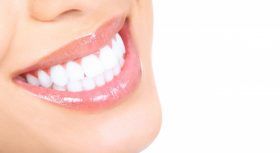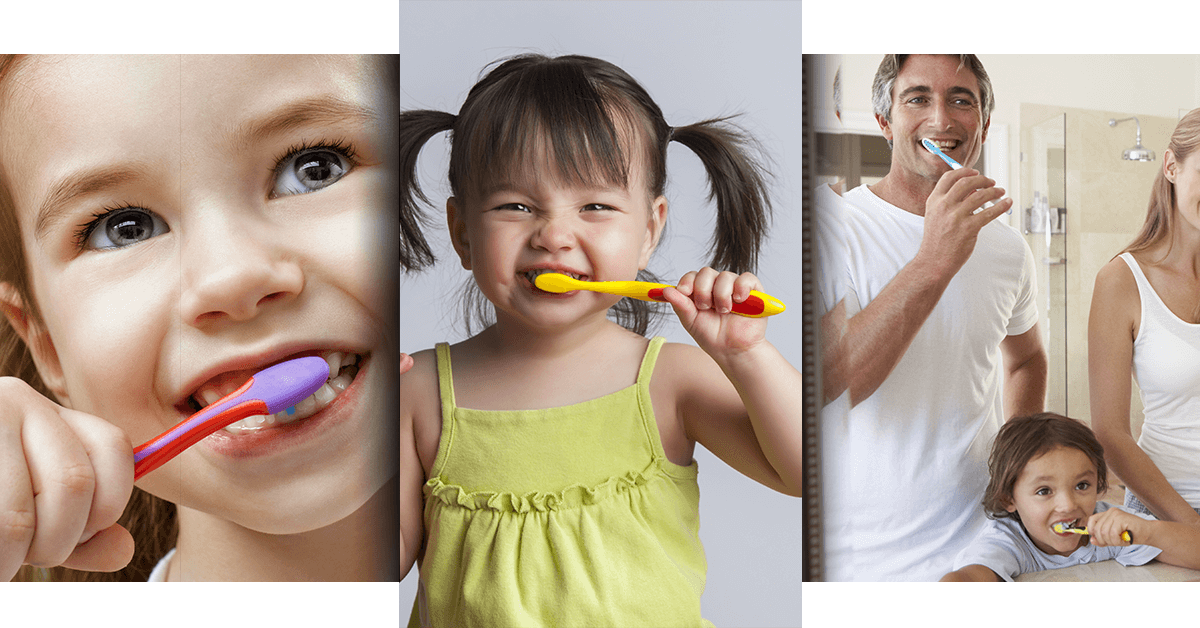Your mom has told you before, and she’ll tell you again: sugary drinks and sweets cause cavities. But what, exactly, does that mean? In this blog, Clopper’s Mill Dental Care will discuss how sugary foods and beverages cause tooth decay, and what you can do to slow down or stop the tooth decay process.
VOTED GERMANTOWN'S TOP DENTIST

What Sugar Does to Your Teeth
Dentist Germantown

How It Works
In the simplest terms, tooth decay occurs when bacteria in the mouth create acids that dissolve and eat away the enamel (outer layer), dentin (middle layer), and pulp (inner layer) of the tooth. The further the decay enters into the tooth, the more damage and pain that you’ll feel.
Sugars themselves do not eat away at your teeth, but they feed the bacteria in your mouth, which produces more acid and accelerates tooth decay. So, if you consume a lot of substances that are sugary and acidic, you’re doing double damage to your teeth.
What’s Causing the Problem
Soda is the most infamous culprit for tooth decay, as it’s packed full of refined sugars and naturally high in acidity. Diet soda fans are in the same boat—while there’s no conclusive evidence on whether or not artificial sweeteners are more or less destructive to teeth than natural sugars, the high acidity in diet soda accelerates tooth decay nonetheless.
Fruit juices and sports drinks, while not nearly as acidic that popular soda brands, still pack a ton of sugar into every serving. For example, while 12 ounces of Coca Cola has 39g of sugar, 12 ounces of apple juice has 33g of sugar—and since fruit juice is widely known to be much healthier than soda, people are more inclined to drink juice in larger quantities, meaning they’re more likely to consume more sugar than they would when drinking soda. Sports drinks like Gatorade fit this same mold. 20 ounces of Fruit Punch Gatorade has 21 grams of sugar and enough acidity to accelerate the effects of tooth decay in an instant.
But it’s not just what you’re drinking. We can’t talk about tooth decay without talking about candy. Gummy worms and bears are made almost entirely of sugar with up to 30g of sugar per serving, and their sticky nature allows for sugars to stick around in your mouth for longer, creating more acid buildup and more tooth decay.
How to Conquer Tooth Decay from Sugar
We get it—even the biggest health nuts and most educated dental professionals can’t help but sip on a Dr. Pepper or munch on some Swedish Fish from time to time. Life is short, so why not treat yourself with something sweet every so often? While indulging in these sweets will certainly have a negative effect on your oral health, there are many steps you can take to lessen the effects that sugars and acids have on your teeth.
Consume sugary drinks in moderation.
You’ve heard the “everything in moderation” phrase a million times before—and while sometimes moderation itself should be practiced in moderation, your consumption of soda and other sugary drinks should definitely be kept to a minimum.
Drinking soda daily nearly triples the chances of tooth decay and cavities, and also dramatically increases
- the risk of obesity
- type 2 diabetes
- heart disease
It’s almost like sugary drinks don’t do any favors for your health at all.
Drink soda with a straw.
If you absolutely can’t kick your soda addiction, then drinking soda through a straw can lessen its effects on your teeth. Using a straw helps soda fly right past your teeth and down your throat, decreasing the time soda is spent in contact with your teeth, which means fewer bacteria feeding and less acid buildup.
Drink water after you consume sugar.
Drinking fluoridated water after consuming sugar will rinse out your mouth and dilute active sugars, slowing down the acid buildup and tooth decay process. Plus, it will help prevent unsightly surface stains on the teeth.
Use fluoride toothpaste.
Fluoride toothpaste does an excellent job cleaning your teeth, helps strengthen tooth enamel, and lessens the effects of tooth decay. Use it daily. However, don’t brush your teeth right after consuming a sugary substance. When sugar does its thing on your teeth, it softens and weakens your tooth enamel. Wait an hour or so after you consume sugar to brush your teeth, so your enamel has enough time to solidify before you brush.
Don’t sip on sugary drinks for a long period of time.
Every time sugary drinks hit your teeth, an “acid attack” occurs. The more sips you take, the more acid attacks you have that compromise your teeth’s enamel. It’s better to drink your sugary beverages faster so they spend less time on your teeth, or use a straw if you’re trying to nurse a Diet Coke on a nice summer day.
Don’t consume sugar right before bed.
It’s always tempting to sneak a scoop of ice cream before you hit the sack—but the consequences of these late-night sugar rushes are huge for your teeth. When you eat sugar right before bed, sugars and acids will pool in your mouth as you sleep, coating your teeth, gums, and tongue. In this situation, you’re subjecting your teeth to a nighttime’s worth of acid attacks and decay. Many nutritionists believe that sugar cravings around bedtime can be a sign of dehydration—so instead of reaching for the cookie jar before bed, reach for a glass of water to satiate your craving. Which leads us to our next point…
Drink more water.
If there’s one thing your mom lectures you about more than eating less sugar, it’s drinking more water. The benefits of drinking more water could be a blog in itself—but in the dental world, drinking more water means healthier saliva levels, decreased risk of bad breath, the dilution of acids and sugars in the mouth, and ultimately, a decreased likelihood for tooth decay, gum disease, cavities, and virtually any other oral health issues. Listen to your mother—drink more water.
Talk to your local dentist!
If you’re concerned about how your sweet tooth is affecting your oral health, pay a visit to the dentists at Clopper’s Mill Dental Care! Our dentists can give you the education and the advanced dental care to treat tooth decay and cavities—or to avoid them altogether. Schedule an appointment today!
